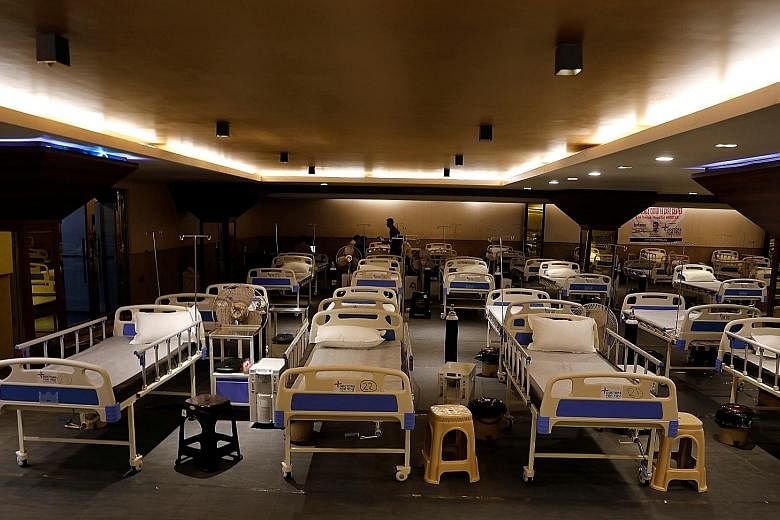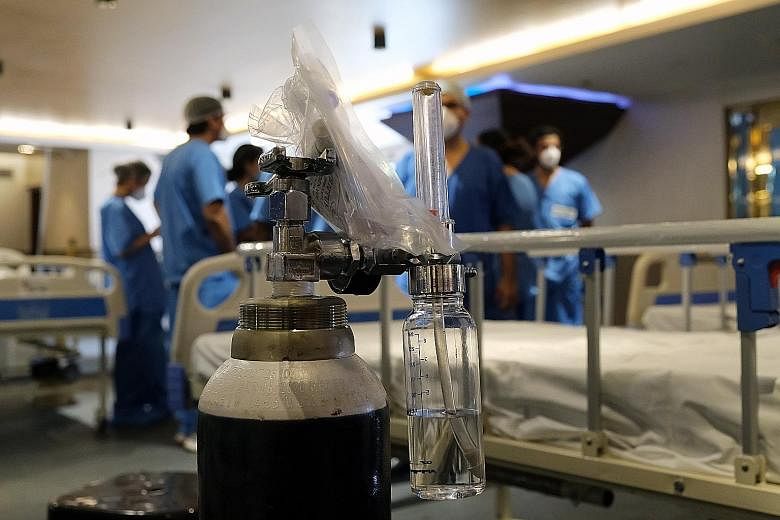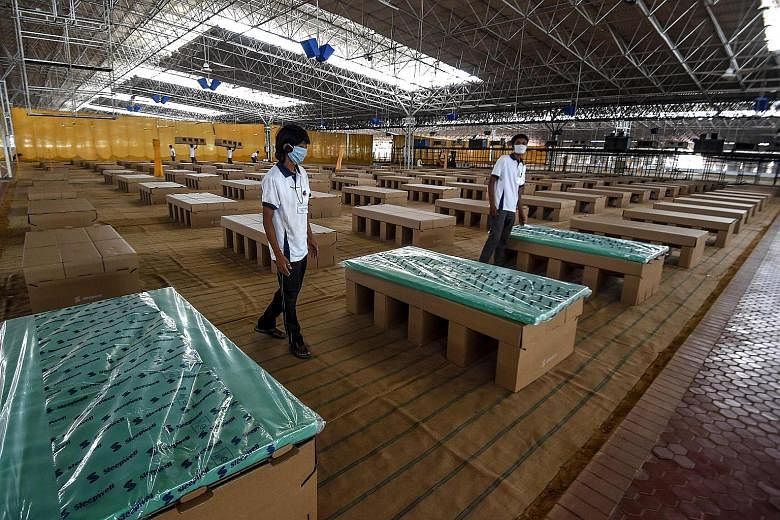Delhi has set up one of the world's largest Covid-19 care facilities, hoping to reinforce its loosening grip on a worrying outbreak of the disease in the Indian capital.
The makeshift facility, expected to be fully operational later this week, has 10,000 beds and covers an area of nearly 1.25 million sq ft, or the equivalent of 16 soccer fields.
The number of cases has climbed rapidly in the capital since the beginning of June, when the countrywide lockdown imposed in March was relaxed. While it had fewer than 21,000 cases at the start of the month, these had doubled to more than 42,000 by June 15.
The current tally stands at 83,077, making it the worst-hit city in the country.
With one estimate suggesting that the number of Covid-19 cases in Delhi could touch 550,000 by the end of next month, the need to augment treatment and isolation facilities has become a key priority.
The new facility will have oxygen support for around 10 per cent of the beds and is mainly aimed at isolating those mildly ill. It is managed by paramilitary personnel from the Indo-Tibetan Border Police.
The Defence Research & Development Organisation and Tata Trust are, meanwhile, also finishing a 1,000-bed air-conditioned facility near the airport, which includes 250 intensive care beds. The authorities in Delhi have increased the number of beds in recent weeks by adopting a number of strategies, including dedicating certain hospitals entirely to Covid-19 and requisitioning banquet halls and hotels, as well as railway coaches.
In a video statement issued last Saturday, Delhi Chief Minister Arvind Kejriwal acknowledged that patients had been shunted from one hospital to another because of the lack of beds at the start of June, but said the situation had vastly improved. He said the city has a current capacity of 13,500 beds, of which only 6,000 are occupied.
But Ms Malini Aisola, a volunteer with a patient support group that has been helping patients access hospital care during the pandemic, told The Straits Times that families of patients continue to face problems because of poor information about the availability of beds under subsidised rates at private hospitals.
Though the Delhi authorities last week made it mandatory for private hospitals to offer 60 per cent of their bed capacity for Covid-19 treatment at rates fixed by the government, getting information on these is difficult, she said. "Details of how many beds are available in each category (such as isolation, ICU with and without ventilator) under fixed rates or free is missing."
This has led to cases of patients signing consent forms that subject them to the full hospital rates.
Many feel that Delhi has seen a surge in cases because of poor contact tracing, lack of adequate healthcare workers and conflicting orders from the state and federal governments, among other reasons.
Dr Mahesh Chandra Misra, former director of the All India Institute of Medical Sciences in Delhi, said people who had returned from overseas in March were "let loose" in big cities such as Delhi with poor tracing.
"We can contain the pandemic only if the clusters are now handled sincerely with more precision, more resources and more monitoring," he said.
The authorities in Delhi said they will survey the city's entire 29 million population, with officials visiting each household to record residents' health details and administering a Covid-19 test to those with symptoms. This massive exercise will be completed by July 6.













